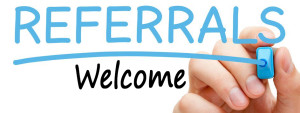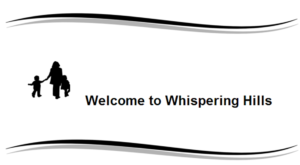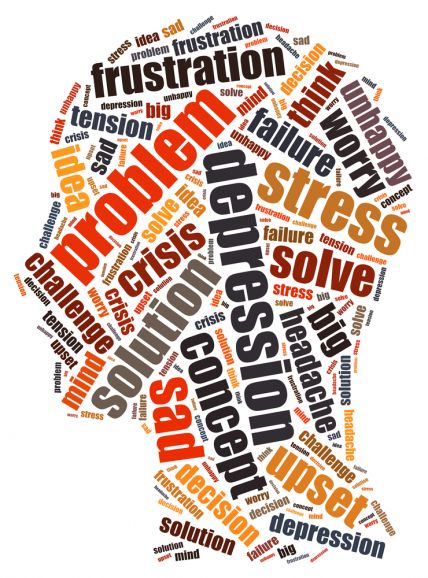
HIV and Mental Health
Receiving a diagnosis of HIV comes with an array of emotions. Initial feelings of shock and denial can turn to fear, guilt, anger, sadness, and a sense of hopelessness, some people even have suicidal thoughts. It is understandable that one might feel helpless and fear illness, disability, and even death. In fact, according to aids.gov, research proves that people who are living with HIV/AIDS often have mental health disorders like anxiety, depression, or mania.
The virus itself can affect your mental health. Some opportunistic infections (which occur when your immune system is damaged by HIV) can affect your nervous system and can lead to changes in behavior and functioning. Some illnesses, like dementia, can be associated with advanced cases of HIV disease. For these reasons, it is important to do a comprehensive evaluation of your mental health and well-being at the beginning of your treatment. It is also important to be open and honest with your healthcare provider about changes in the way you are thinking, or how you are feeling about yourself and life in general.
One thing that is certain, when living with HIV/AIDS, good mental health is essential for a successful treatment and for living a happy and healthy life. The first step of doing so is knowing that HIV can affect your mental health – and that there are resources available to help if you need it. So how do you know that it’s time to get help? Sometimes, you can notice a change in yourself—and, sometimes, the people around you are the ones who notice. Some changes that might be significant include:
- Experiencing “panic attacks”
- No longer finding enjoyment in activities which usually make you happy
- Withdrawing from social interaction
- Change in memory functioning
- Sleeping too much—or being unable to sleep
- Feeling “sad” or “empty” much of the time
- Feeling guilty
- Feeling tired all the time
Below are mental health diseases commonly associated with a diagnosis of HIV according to the American Psychiatric Association:
Depression
Depression is a serious medical condition that can be paralyzing to sufferers. It is twice as common in people with HIV as in the general population. Depression is characterized by the presence of most or all of the following symptoms: low mood, apathy, fatigue, inability to concentrate, loss of pleasure in activities, changes in appetite and weight, trouble sleeping, low self-worth, and, possibly, thoughts of suicide. There are many different types of treatments for depression, including antidepressants and specific types of psychotherapy, or “talk” therapy. Treatment, however, must be carefully chosen by a physician or a mental health professional based on the patient’s physical and mental condition.
Anxiety
Anxiety is a feeling of panic or apprehension, which is often accompanied by the physical symptoms of sweating, shortness of breath, rapid heart beat, agitation, nervousness, headaches, and panic. Anxiety can accompany depression or be seen as a disorder by itself, often caused by circumstances that result in fear, uncertainty, or insecurity. Each HIV patient and each experience of anxiety is unique and must be treated as such. Many drugs offer effective treatment, and many alternative remedies have proven useful, either alone or in combination with medication. Among them: muscle relaxation, acupuncture, meditation, cognitive behavioral therapy, aerobic exercise, and supportive group therapy.
Substance Use
Substance use is very common among those with HIV infection. Unfortunately, substance use can trigger and often complicate mental health problems. For many, mental health problems predate substance use activity. Substance use can increase levels of distress, interfere with treatment adherence, and lead to impairment in thinking and memory. Diagnosis and treatment by a psychiatrist or other qualified physician is critical because symptoms can mimic psychiatric disorders and other mental health problems. The idea that HIV is closely connected to substance abuse is not surprising to healthcare providers who have been working to care for people living with HIV for any length of time. But what many people don’t know is that substance abuse is significantly tied to both prevention AND treatment of HIV.
Cognitive Disorders
Direct or indirect effects of the HIV virus can affect brain functioning. Some medications used to treat HIV infection also can cause similar complications. In people with HIV infection or AIDS, these complications can have a significant impact on daily functioning and greatly diminish quality of life. Among the most common disorders are HIV-associated minor cognitive motor disorder, HIV-1-associated dementia complex, delirium, and psychosis. Signs of trouble may include forgetfulness, confusion, attention deficits, slurred or changed speech, sudden changes in mood or behavior, difficulty walking, muscle weakness, slowed thinking, and difficulty finding words.
Signs of any of these problems should be discussed with a physician immediately. New anti-HIV therapies in combination with psychiatric medication can reverse delirium and dementia and markedly improve cognition; however, special care must be taken to ensure that the drugs do not interact with HIV medications. Psychotherapy also can help patients understand their condition and adapt to their diminished level of functioning.
One of the hardest parts of having mental health issues is that you may not feel like seeking treatment or going to your appointments once you schedule them. If you are feeling this way, ask a friend or family member to help you make and keep your appointments. When you follow through, your mental health provider can help you feel better, and that can improve your chances of successful HIV treatment.

Heart Disease in Women
All women face the threat of heart disease. But becoming aware of symptoms and risks unique to women, as well as eating a heart-healthy diet and exercising, can help protect you.
Although heart disease is often thought of as a problem for men, more women than men die of heart disease each year. One challenge is that the heart disease symptoms in women can be different from symptoms in men. Fortunately, women can take steps to understand their unique symptoms of heart disease and to begin to reduce their risk of heart disease.
According to the Center for Disease Control, the term “heart disease” refers to several types of heart conditions. The most common type in the United States is coronary artery disease, which can cause heart attack, angina, heart failure, and arrhythmias.
Heart Attach Symptoms In Women: The most common heart attack symptom in women is some type of pain, pressure or discomfort in the chest. But it’s not always severe or even the most prominent symptom, particularly in women. Women are more likely than men to have heart attack symptoms unrelated to chest pain, such as:
- Neck, shoulder, upper back or abdominal discomfort
- Shortness of breath
- Nausea or vomiting
- Sweating
- Lightheadedness or dizziness
- Unusual fatigue
These symptoms are more subtle than the obvious crushing chest pain often associated with heart attacks. This may be because women tend to have blockages not only in their main arteries, but also in the smaller arteries that supply blood to the heart — a condition called small vessel heart disease or microvascular disease.
Heart Disease Risk Factors for Women: Although the traditional risk factors for coronary artery disease — such as high cholesterol, high blood pressure and obesity — affect women and men, other factors may play a bigger role in the development of heart disease in women. For example:
- Metabolic syndrome — a combination of fat around your abdomen, high blood pressure, high blood sugar and high triglycerides — has a greater impact on women than on men.
- Mental stress and depression affect women’s hearts more than men’s. Depression makes it difficult to maintain a healthy lifestyle and follow recommended treatment, so talk to your doctor if you’re having symptoms of depression.
- Smoking is a greater risk factor for heart disease in women than in men.
- Low levels of estrogen after menopause pose a significant risk factor for developing cardiovascular disease in the smaller blood vessels (small vessel heart disease).
What Can Women Do to Reduce the Risk of Heart Disease:
Luckily, there are several lifestyle changes you can make to reduce your risk of heart disease. Just incorporating these simple daily activities could be a matter of life and death.
- Exercise 30 to 60 minutes a day on most days of the week.
- Maintain a healthy weight.
- Quit or don’t start smoking.
- Eat a diet that’s low in saturated fat, cholesterol and salt.
You’ll also need to take prescribed medications appropriately, such as blood pressure medications, blood thinners and aspirin. And you’ll need to better manage other conditions that are risk factors for heart disease, such as high blood pressure, high cholesterol and diabetes. Some women at high risk of heart disease may also benefit from the use of supplements, such as omega-3 fatty acids. (Mayo Clinic)
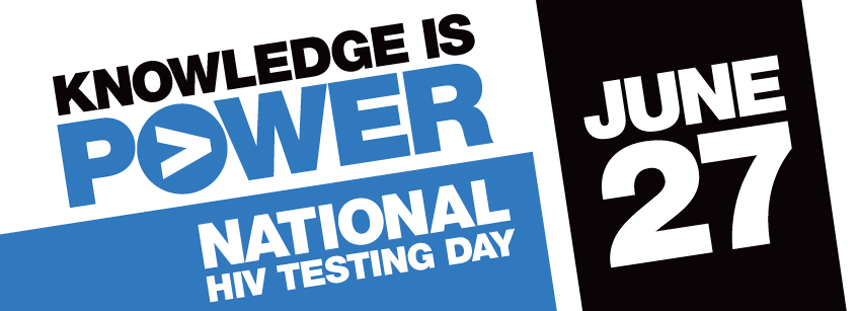
National HIV Testing Day is June 27, let W.O.M.E.N. Help you KNOW YOUR STATUS!
This year not only marks the 19th year of the inception of W.O.M.E.N., but also the 19th anniversary of National HIV Testing Day, the perfect time to take advantage of TWO tools in HIV prevention. This Thursday, June 27, 2013, Women On Maintaining Education and Nutrition will be conducting FREE and CONFIDENTIAL HIV Testing from 9:00 a.m. – 4:00 p.m. In addition to testing, we will provide integral information, resources, and one on one counseling to inform and educate those who are interested as well as complimentary refreshments for all participants!
Today, it is estimated that every 9.5 minutes, someone in the United States is infected with HIV. According to aids.gov, over 1 million people in the United States are infected with HIV while an astonishing 1 in 5 people living with HIV are unaware of their infection. Don’t let yourself become a statistic and take advantage of what is being offered to you right in your very backyard. Take control of your life and know your status, all it takes is 20 minutes and a quick, painless swab of your mouth.
Can’t make it to W.O.M.E.N. on the 27th? NO PROBLEM! We offer free AND confidential HIV testing and counseling Monday – Friday, 8:00 am – 5:00 p.m. We take appointments and walk-ins, there are NO EXCUSES!

East Side Story to Host Book Signing for Catherine Wyatt-Morley’s Latest Book: My Life With AIDS, Tragedy to Triumph
Women On Maintaining Education and Nutrition (W.O.M.E.N.) Founder and Chief Executive Officer Catherine Wyatt-Morley will hold a signing for her third book, My Life with AIDS, Tragedy to Triumph, on Saturday, June 29, 2013 from 3 p.m. – 4 p.m. at East Side Story at 1008 Woodland St., Unit B, Nashville, Tenn.
“My Life with AIDS, Tragedy to Triumph addresses difficulties facing minorities, women, and children with HIV/AIDS and the families who are both infected and affected by the disease.” said Wyatt-Morley. “It sounds the alarm to those minorities, women and children at risk of contracting the infection. HIV/AIDS has touched my life in more ways than I could have ever imagined. Here I share the ways the disease has touched me, my children and others.”
Wyatt-Morley’s efforts have been honored with a plaque in the Women’s National Hall of Fame. She received SELF Magazine‘s Women Doing Good award, which honors women changing the world for the better. W.O.M.E.N. is the only 19 year old HIV/AIDS social service, community-based agency founded, organized and administered by an African American mother living with AIDS in Tennessee.
“By letting readers into the lives and inner thoughts of HIV-positive women, Catherine empowers women everywhere, demonstrating the way forward,” says Wendy Horn, PhD., President and Principal Writer, Insight Communications Group. “Her book is enlightening, entertaining, educational, and always moving.”
The event is free and open to the public!

See you this Friday on the Bridge!
There are just TWO days until W.O.M.E.N. will be celebrating Catherine Wyatt-Morley’s latest book, My Life With AIDS, Tragedy to Triumph at Book on the Bridge!
Book on the Bridge will take place THIS Friday, June 21, 2013 at 5:30 p.m. on the Renaissance Hotel pedestrian bridge (611 Commerce Street, Downtown Nashville).
Guests will be able to purchase My Life With AIDS, Tragedy to Triumph and have the opportunity to have it signed by Catherine Wyatt-Morley!
Special Guests include:
State Representative, Brenda Gilmore
Theodora Pinnock, M.D.
and Entertainment by Keith Floyd!
Please call W.O.M.E.N. at 615-256-3882 if you have any questions regarding Book on the Bridge
This event is FREE and open to the public. All proceeds from Book on the Bridge will go to 501 (c)3 W.O.M.E.N.

Four Days Left Until Book on the Bridge!
There are only four days left until W.O.M.E.N.’s celebration of Catherine Wyatt Morley’s new book,
My Life With AIDS, Tragedy to Triumph.
Catherine Wyatt Morley’s third book is now available and it’s time to celebrate! Book on the Bridge will take place this Friday, June 21, 2013 at 5:30 p.m. at the Renaissance Hotel pedestrian bridge. This event is FREE and open to the public! Guests will enjoy hors d’oeuvres and refreshments while listening to keynote speaker State Representative, Brenda Gilmore and the author of the foreword of My Life With AIDS, Tragedy to Triumph, Theodora Pinnock, M.D. In addition, Catherine Wyatt-Morley will be signing copies of her book!
My Life With AIDS, Tragedy to Triumph is now available on www.amazon.com!
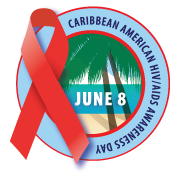
Caribbean American HIV/AIDS Awareness Day, 6/8/13
Because June 8, 2013 is Caribbean American HIV/AIDS Awareness Day, it is important to recognize the startling facts about the demoralizing impact HIV/AIDS is having on the Caribbean American communities all over the world. According to the Caribbean People International Collective, Inc., surveys of Caribbean American communities reveal significant health disparities and have identified HIV/AIDS and inadequate access to health care as a major health issue in this population.
People of color now account for a greater proportion of AIDS cases reported. A close examination of the U.S. AIDS cases over the past decade reveals that HIV/AIDS is the leading cause of death among African American between the ages of 25-44, according to the Centers for Disease Control. It is important to note that African-American are often viewed as one group, there is, in fact, a wide variety of populations in the US included under this heading are upper class, lower class, Christian, Muslim, inner city, suburban, descendants of slaves and recent Caribbean immigrants all come under the African-American heading.
A high rate of migration between the Caribbean and the United States creates potential public health implications for the delivery of care and treatment services for Caribbeans living with HIV/AIDS in the United States. Poor health, premature death and AIDS have challenged the extended Caribbean-American family in every part of the country to find new reservoirs of compassion, to increase our political voices, confront many difficult issues such as drug use, sexuality, poor health care which for generations, have been deemed unmentionable. The spiritual lives of our communities have been tested to its core as religious leaders reach out to advocate with families who have suffered stigma and exclusion.

Purpose and…
Live purposefully. You only have one life to get it right. You were born, you live and then you die. Time moves quickly. Time ticks into days, traveling into weeks, progressing into months, falling into years, running into decades. What did you do with the time between ticking, traveling, progressing, falling and running?
When life happens and your midnight hour comes and your mind becomes the battlefield and your body weakens under the pressure and the winds pierce your soul and the storms of life cause torrential downpours and difficulty becomes your second skin and your blood boils in despair and everything seems to come against you and heartbreak rocks your world and the pit of down consumes you and up is located on another planet, live purposefully.
At the end of life material wealth will all be put on a shelf. All that stuff -diamonds, gold, silver- we just can’t get enough- cars, houses, clothes and even your cherished bling won’t mean a thing.
What will matter will be who’s life you made richer, deeper, stronger, meaningful. Empowerment with a purpose! Who will remember you when you are gone? When your last breath has been drawn and you lay hands crossed and the music stops and the dirt covers your hole in the ground and the flowers have withered away and the time between ticking, traveling, progressing, falling and running has passed, did you live purposefully? Each of us has a purpose, a destiny.

You are Invited to Join W.O.M.E.N. at ‘Book on the Bridge’
Women On Maintaining Education and Nutrition to Host “Book on the Bridge”
Celebrating Catherine Wyatt-Morley’s Latest Book: My Life With AIDS, Tragedy to Triumph
Women On Maintaining Education and Nutrition (W.O.M.E.N.) Founder and Chief Executive Officer Catherine Wyatt-Morley will hold a signing for her third book, My Life with AIDS, Tragedy to Triumph on Friday, June 21, 2013 at 5:30 p.m. on the Renaissance Hotel pedestrian bridge at 611 Commerce St., Nashville, Tenn.
“My Life with AIDS, Tragedy to Triumph addresses difficulties facing minorities, women, and children with HIV/AIDS and the families who are both affected and effected by the disease.” said Wyatt-Morley. “It also sounds the alarm to those minorities, women and children at risk of contracting the infection. HIV/AIDS has touched my life in more ways than I could have ever imagined. Here I share the ways the disease has touched me, my children and others.”
W.O.M.E.N will host an evening of celebration to honor Wyatt-Morley on My Life with AIDS, Tragedy to Triumph. The event is free and open to the public, and will take place on the pedestrian bridge connecting the Renaissance Hotel and the Nashville Public Library parking garage. Hors d’oeuvres and refreshments will be offered. Music will be performed by Keith Floyd, as well as moments of inspiration shared by keynote speaker, State Representative Brenda Gilmore, author of the foreword of My Life with AIDS, Tragedy to Triumph, Theodora Pinnock, M.D. as well as Catherine Wyatt Morley.
“By letting readers into the lives and inner thoughts of HIV-positive women, she empowers women everywhere, demonstrating the way forward,” says Wendy Horn, PhD., President and Principal Writer, Insight Communications Group. “Catherine’s book is in turn enlightening, entertaining, educational, and always moving.”
W.O.M.E.N. is the only 19 year old HIV/AIDS social service, community-based agency founded, organized and administered by an African American mother living with AIDS in Tennessee. Catherine’s efforts have been honored with a plaque in the Women’s National Hall of Fame and she is a recipient of SELF Magazine‘s ‘Women Doing Good’ award, which honors women changing the world for the better.

Grant Writing Position Available with W.O.M.E.N.
Women On Maintaining Education and Nutrition is looking to fill the position of Grant Writer. This position will be responsible for writing proposals for both unrestricted operating revenue and restricted projects as well as for submitting timely and accurate reports for all existing grant funded projects. This is a part time position with the potential to become full time depending upon resources acquired.
Major Responsibilities:
- Write and edit proposals in response to foundation, corporate and government RFP’s
- Manage a calendar of both unrestricted and restricted deadlines
- Attend applicable resource development meetings
- Maintain a clear understanding of the organization’s history and programs
- Make appointments with foundation officers
- Identify potential funders
- Produce letters of intent and proposals for submission
- Develop professional working relationships with private and public funder contacts and monitors
Requirements:
- Proven experience in writing successful proposals, particularly federal proposals, in one or more of the following areas: Economic Development, Family Support Services, HIV/AIDS Services, Housing Services and Food Services
- Ability to analyze present data in a compelling manner
- Strong familiarity with government and foundation contract/grant proposals
- Ability to manage time and multiple projects efficiently
- Excellent attention to detail; ability to proofread effectively
- Ability to work in a team environment and be self-directed
- Strong computer and interpersonal skills
- Ability to manage and meet multiple deadlines
Knowledge and Skills:
- Strong written communication skills; ability to write clear, structured, articulate and persuasive proposals
- Strong editing skills, attention to detail and ability to meet deadlines
- Experience with proposal writing and institutional donors
- Strong contributor in team environments
Qualifications:
- Minimum of two years experience with grant writing
- Previous experience with non-profit fundraising
- Experience working in deadline-driven environments
- Able to work well in a team environment, handle multiple assignments and meet deadlines
- Able to monitor and meet income goals
DIRECTIONS FOR APPLYING: Send resume, salary requirements and cover letter detailing how your experience and skills fit this position, as well as a written grant submission sample which you prepared to [email protected]

